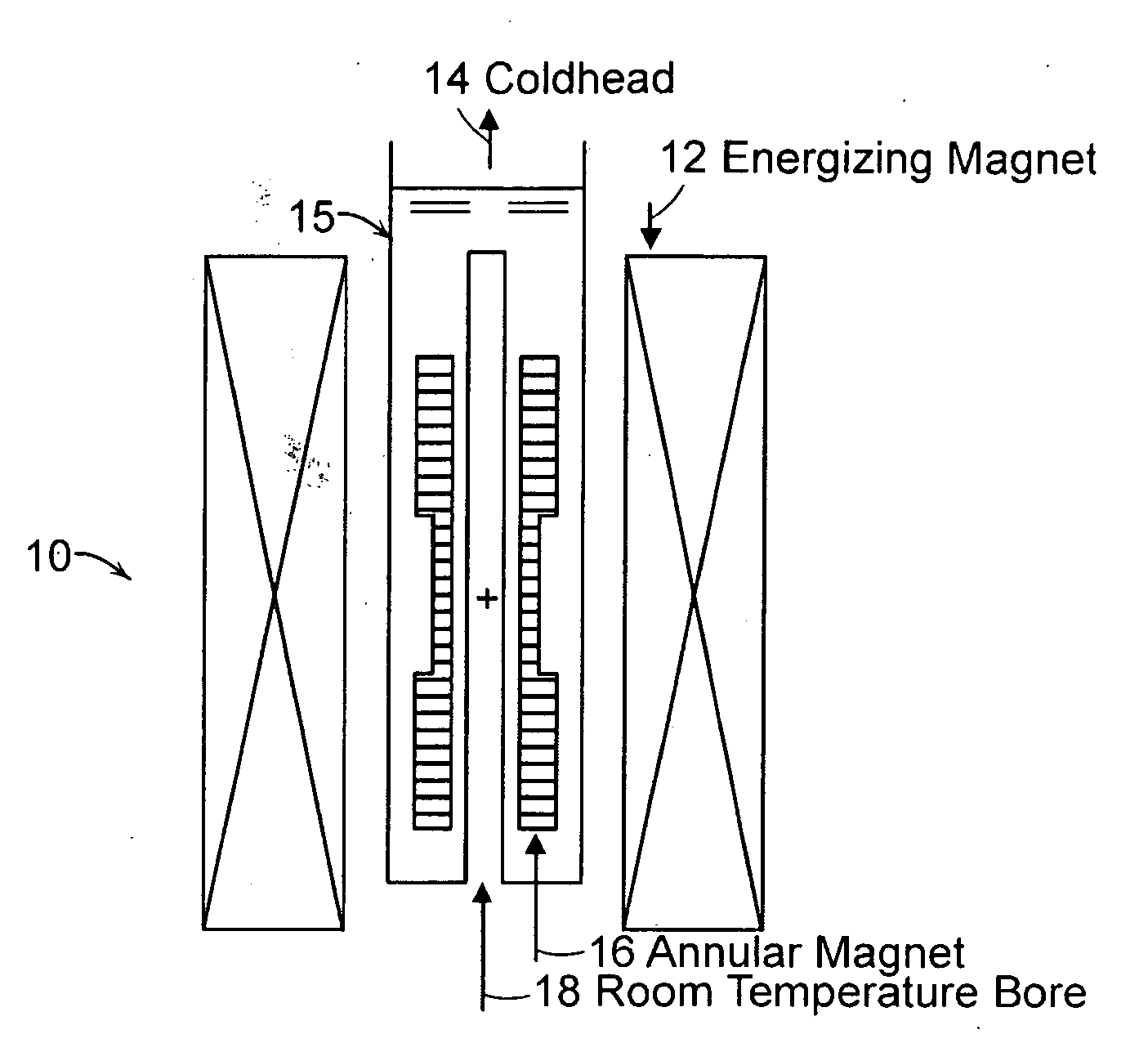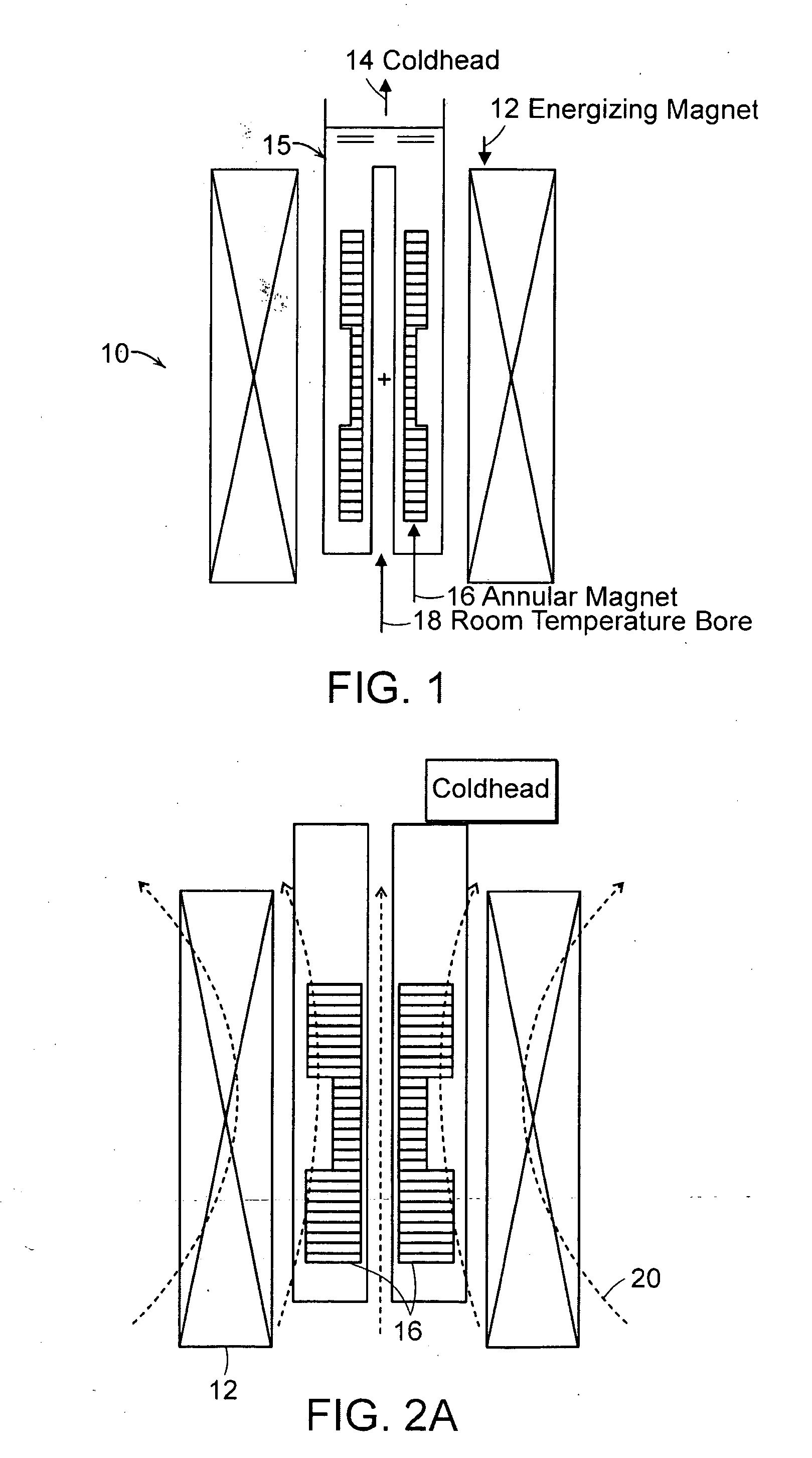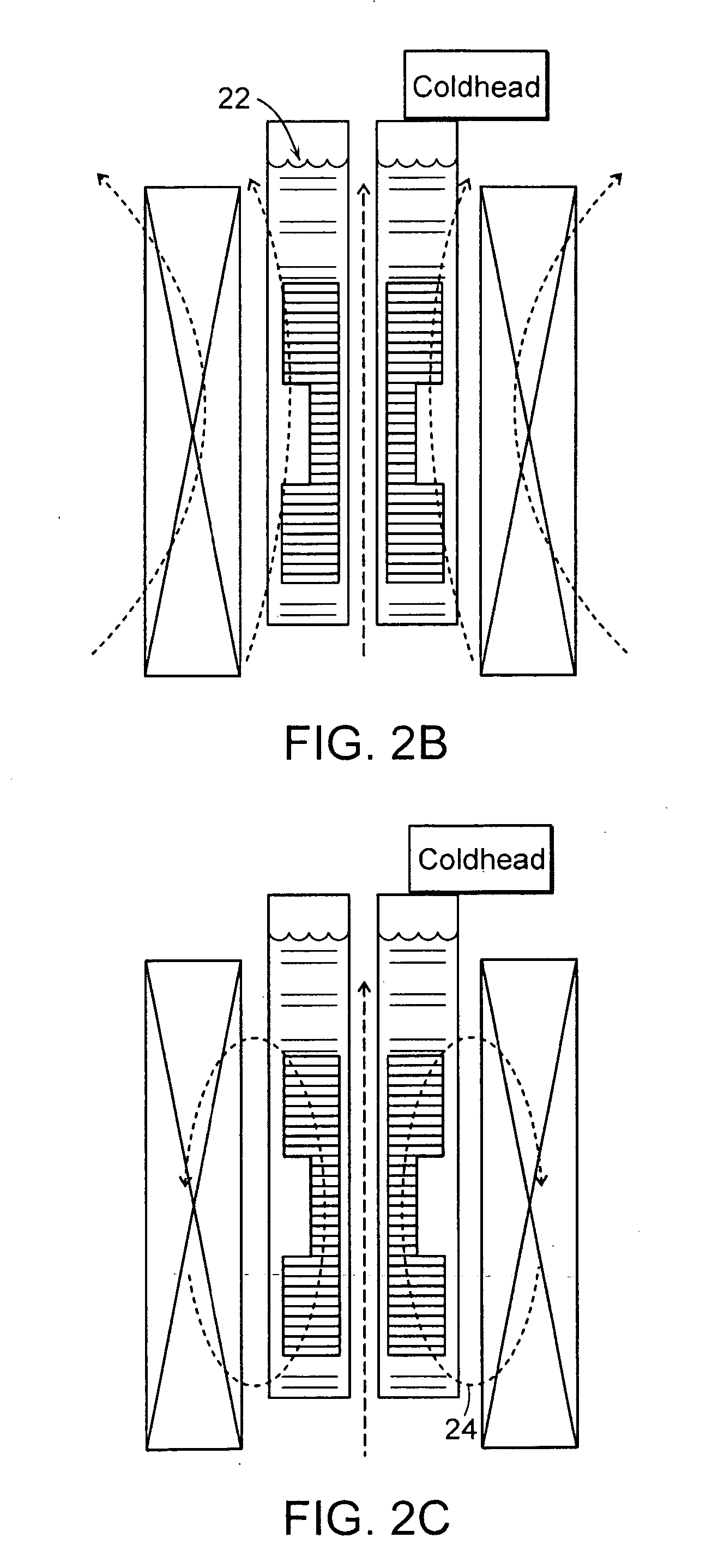Annular magnet system for magnetic resonance spectroscopy
a magnetic resonance spectroscopy and annular magnet technology, applied in the field of magnetic resonance systems, can solve the problems that materials have yet to find a useful magnet application, and achieve the effect of simple manufacturability and improved current density
- Summary
- Abstract
- Description
- Claims
- Application Information
AI Technical Summary
Benefits of technology
Problems solved by technology
Method used
Image
Examples
Embodiment Construction
[0021]FIG. 1 shows a schematic of the system 10 configuration of an annular magnet 16, a cryostat 15 for the annular magnet, an external electromagnet 12 for energizing the magnet; and a coldhead 14. Note that the annular magnet has a room-temperature bore 18 and that the magnet is immersed in a bath of cryogen or surrounded by a volume of solid cryogen. Further details regarding the system can be found in Iwasa et al., “A Persistent Mode Magnet Comprised of YBCO Annuli” Proceedings ASC 2004, Jacksonville, Fla., Oct. 4, 2004, the entire contents of which is incorporated herein by reference. A bulk superconducting material can be a rigid section of material having a cross-sectional area of at least 1 cm2, for example, with a thickness of at least 1 mm and a tensile strength as set forth herein. Other rare-earth superconducting compounds of the form Re—Ba—Cu—O such as DyBCO (dysprosium), NDBCO (neodymium), and HoBCO (holmium) which have the desired current density and field uniformity...
PUM
 Login to View More
Login to View More Abstract
Description
Claims
Application Information
 Login to View More
Login to View More - R&D
- Intellectual Property
- Life Sciences
- Materials
- Tech Scout
- Unparalleled Data Quality
- Higher Quality Content
- 60% Fewer Hallucinations
Browse by: Latest US Patents, China's latest patents, Technical Efficacy Thesaurus, Application Domain, Technology Topic, Popular Technical Reports.
© 2025 PatSnap. All rights reserved.Legal|Privacy policy|Modern Slavery Act Transparency Statement|Sitemap|About US| Contact US: help@patsnap.com



